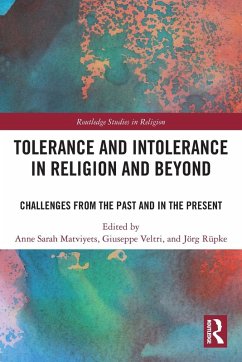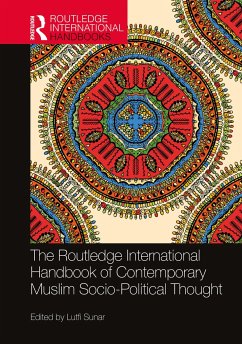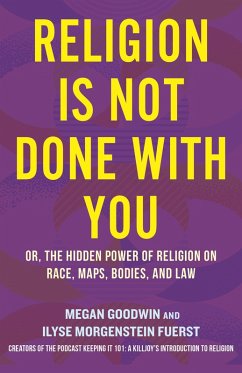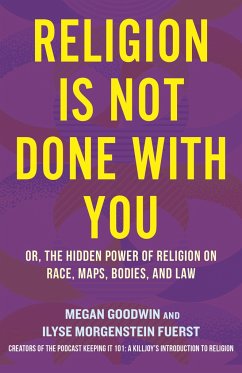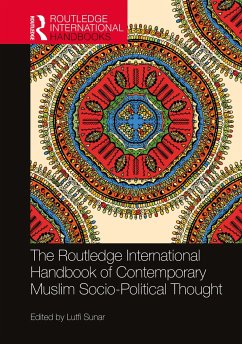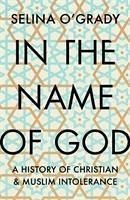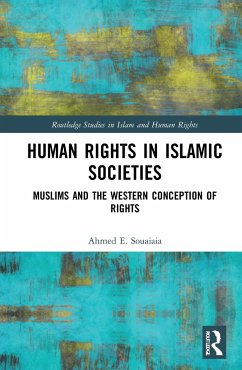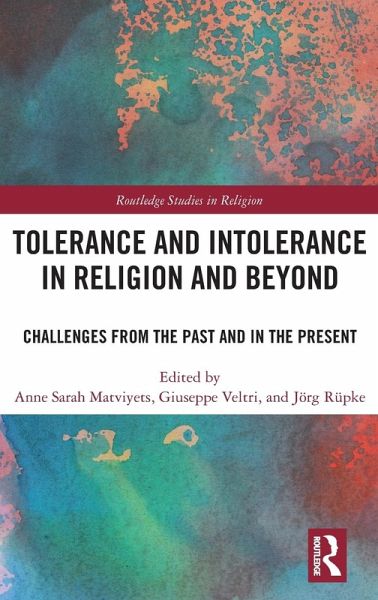
Tolerance and Intolerance in Religion and Beyond
Challenges from the Past and in the Present
Herausgegeben: Matviyets, Anne Sarah; Veltri, Giuseppe; Rüpke, Jörg
Versandkostenfrei!
Versandfertig in 6-10 Tagen
154,99 €
inkl. MwSt.

PAYBACK Punkte
77 °P sammeln!
This book focuses on religious tolerance and intolerance in terms of practices, institutions, and intellectual habits. It brings together an array of historical and anthropological studies and philosophical, cognitive, and psychological explorations by established scholars from a range of disciplines.The contributions feature modern and historic instances of tolerance and intolerance across a variety of geographies, societies, and religious traditions. They help readers to gain an understanding of the notion of tolerance and the historical consequences of intolerance from the perspective of di...
This book focuses on religious tolerance and intolerance in terms of practices, institutions, and intellectual habits. It brings together an array of historical and anthropological studies and philosophical, cognitive, and psychological explorations by established scholars from a range of disciplines.
The contributions feature modern and historic instances of tolerance and intolerance across a variety of geographies, societies, and religious traditions. They help readers to gain an understanding of the notion of tolerance and the historical consequences of intolerance from the perspective of different cultures, religions, and philosophies. The volume highlights tolerance's potential to be a means to build bridges and at the same time determine limits.
Whilst the challenge of promoting tolerance has mostly been treated as a value or practice of demographic or religious majorities, this book offers a broader take and pays attention to minority perspectives. It is a valuable reference for scholars of religious studies, the sociology of religion, and the history of religion.
The contributions feature modern and historic instances of tolerance and intolerance across a variety of geographies, societies, and religious traditions. They help readers to gain an understanding of the notion of tolerance and the historical consequences of intolerance from the perspective of different cultures, religions, and philosophies. The volume highlights tolerance's potential to be a means to build bridges and at the same time determine limits.
Whilst the challenge of promoting tolerance has mostly been treated as a value or practice of demographic or religious majorities, this book offers a broader take and pays attention to minority perspectives. It is a valuable reference for scholars of religious studies, the sociology of religion, and the history of religion.





